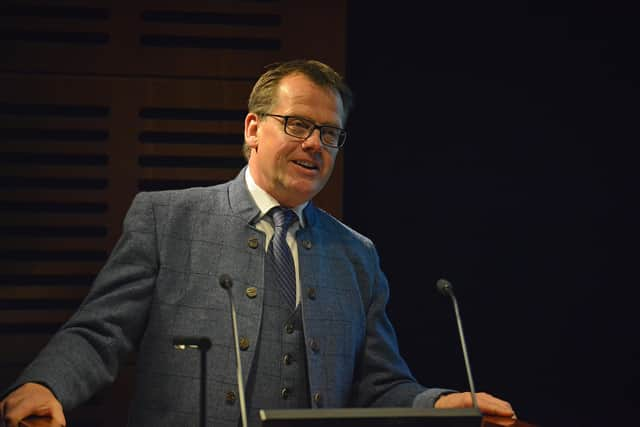Scottish Chambers of Commerce calls for 'real action' to help pull Scots economy out of 'shadow of low growth'
The next general election must prompt “real action” to stimulate business growth, with Scotland’s economy currently “stuck in a low growth cycle”, according to the latest quarterly economic indicator report from the Scottish Chambers of Commerce (SCC). The trade body’s president Stephen Leckie said the survey results published today show that “persistently high inflation, higher borrowing costs, frozen investment and ongoing global uncertainty are placing businesses under significant pressure”.
The study was undertaken between November 6 and December 4, and therefore before the news that inflation increased to 4 per cent in December, from the prior month’s low of 3.9 per cent. The SCC found that concern over inflation among the 420 respondent firms fell to 52 per cent, down from 75 per cent quarter on quarter, while more than half of firms continue to report no changes to both total (55 per cent) and training (54 per cent) investment.
Advertisement
Hide AdAdvertisement
Hide AdLeckie – also boss of the Crieff Hydro hotel group – said such a lack of changes has worsened the Scottish economy’s low growth cycle. “New and increasing regulations are adding extra costs onto businesses, squeezing our ability to invest and leading many sectors into legislation fatigue,” he stated. “The decision by the Chancellor to make full expensing permanent in the Autumn Statement was welcome – but more must be done to shift the dial and incentivise firms to invest.”


The quarterly report additionally shows that recruitment remains challenging, affecting 40 per cent of firms, with associated labour costs still affecting seven in ten companies, and Leckie said skills shortages and availability of talent “continue to act as a major barrier for business expansion”.
He also called for the Scottish Government’s £2.4 billion investment into colleges, universities and the wider skills system, to “remain agile to align with future economic demand”, while businesses are “rightly asking why practical existing schemes such as the Flexible Workforce Development Fund have been scrapped”.
Leckie continued: "On top of these concerns, companies are now grappling with the increasing tax burden of working in Scotland, making it more challenging to retain and attract talent. The introduction of a new income tax band is impacting on our competitiveness and depleting the spending power of individuals in the economy.
“Looking further afield, a coherent policy approach from the UK Government is urgently needed to attract and secure international talent. Recent announcements have caused confusion, and impacts on our global reputation, which risks deterring skilled workers from choosing to live and work in Scotland.”
He also said overall that issues raised in the latest economic survey “must be addressed by all parties at the next general election with businesses… parties of all colours will be tested on whether they are listening to business and taking real action to back business growth”.
João Sousa, deputy director of the Fraser of Allander Institute, also commented: “Scotland might not be in a technical recession, but growth has remained subdued, in a stop-start pattern since the beginning of 2022.” However, he also said sales growth has continued and some cost pressures are starting to ease, for example.
The report follows the publication in December of two bellwether economic surveys painting a mixed picture for Scotland’s private sector.
Comments
Want to join the conversation? Please or to comment on this article.